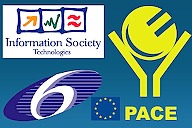The evolution of molecular computation, embedded in protocells, has been investigated with the development of a family of maximally simplified string based artificial chemistries (the Molecular Classifier Systems or MCS). Any such network of molecular computation must participate in the overall reaction closure (collective self-production) of the protocell, in order to be preserved through protocell reproduction (cell division). This theoretical and simulation investigation has therefore focussed on the underlying dynamics of minimal "template replicating" string systems. This conceives of a protocell as, in part, a contained "replicator world". Each string can function both as a template to be replicated, and as a replicase to catalyse the replication of other strings. A collectively self-replicating ecology of strings can then function both as a molecular information processing system in its own right, and as a mechanism for realising a repertoire of heritable but still mutable protocell level variation. We present foundational theoretical analysis of such systems, and simulation results from a series of progressively more elaborated model systems. The conclusion is that, although the framework presented here is necessarily schematic, it is sufficient to identify low level design implications for at least some forms of effectively evolvable protocell-embedded molecular computation. As such, it can be a useful foundation for future elaboration, as and when practical synthesis of functioning protocells becomes feasible.
© 2004-2008 All rights reserved by PACE Consortium . Email. Web Managers: U. Tangen & J. S. McCaskill

